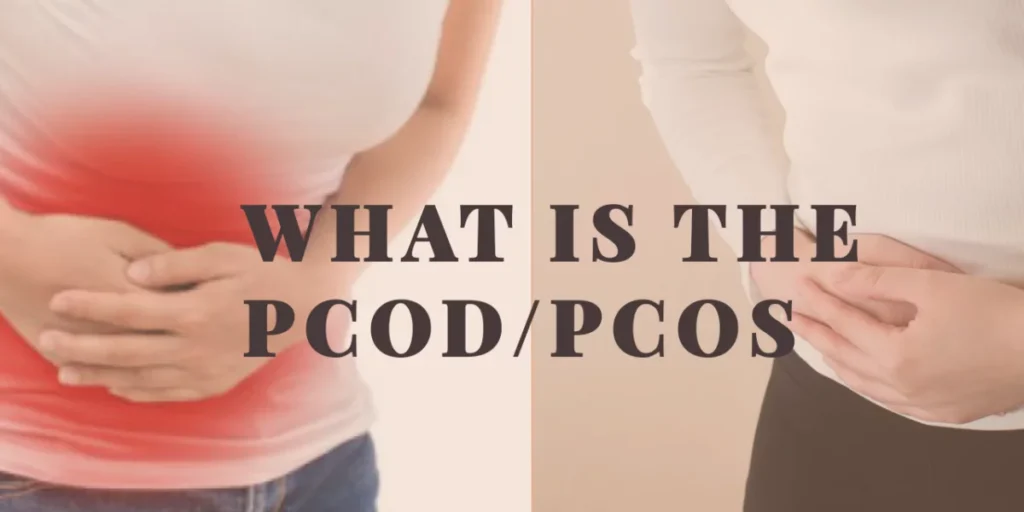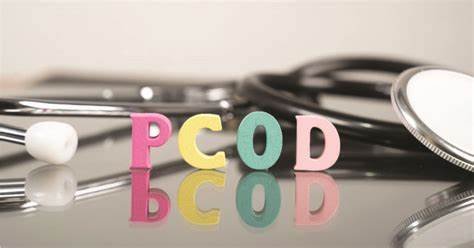PCOD Detection and Treatment: PCOD, or Polycystic Ovary Syndrome, is a common hormonal disorder affecting individuals assigned to females at birth. From the moment of discovery to leading a healthy and balanced life, understanding PCOD is crucial for overall well-being. Let’s delve into the various aspects of PCOD, navigating the complexities with empathy and knowledge.

Introduction | PCOD Detection and Treatment
PCOD, often referred to as a silent disruptor, demands our attention. It’s not just about irregular periods; it includes a spectrum of challenges that individuals face. PCOD Detection and Treatment intricacies are the first step toward achieving a life of balance and health.
Misconception of Society
Polycystic Ovary Syndrome (PCOS) is a common genetic issue affecting those with ovaries. It can cause irregular periods and other challenges, but it’s not a serious threat. You can manage it by adopting a healthy lifestyle—exercise and eat well. Keeping a healthy weight is crucial too, as it helps balance hormones.
Don’t worry too much; PCOS is manageable. Also, many people don’t know much about it, so you don’t have to share if you’re not comfortable. If you do, though, it can help raise awareness and understanding. Let’s support each other and create a more informed community.
It’s important to note that despite PCOS challenges, many women with the condition can still conceive with proper management.

Understanding PCOD: A Closer Look
Common Symptoms and Signs | Early Detection
Irregular periods, low abdominal pain, acne, face hair growth, and weight gain are common indicators. The other common sign/symptom is dehydration than common individuals. Recognizing these signs promptly aids in early intervention, positively impacting long-term health.
Early detection is the linchpin in managing PCOD effectively. Routine check-ups, especially for those experiencing symptoms, play a pivotal role in timely diagnosis.
Diagnosis: Navigating the Path to Wellness
Consulting Healthcare Professionals
Communicating with gynecologists to seek detailed guidance for managing PCOD in more better way.

Lifestyle Modifications for PCOD Management
Importance of a Balanced Diet
A balanced diet is crucial for individuals with Polycystic Ovary Syndrome (PCOS) to help manage symptoms and support overall well-being. To live a balance and healthy life, follow the diet chart provided by your doctor/neutrinos.
Role of Regular Exercise
Regular exercise is super important for managing PCOD. It helps control blood sugar, prevent you from mood swings, keeps weight in check, reduces stress, and improve overall health. This is crucial because managing stress is a big deal for PCOD symptoms. Including different types of exercise like walking, strength training, and stretching can make a big difference. Just check with a doctor before starting to make sure it’s the right fit for you.
How to Manage Stress
To manage stress with PCOD, try regular exercise like walking or yoga. Practice deep breathing and take breaks for activities you enjoy. Get enough sleep, eat well, and limit caffeine. Talk to friends or a counselor for support. Small changes can make a big difference in feeling better.
Supportive Partner
A supportive partner is invaluable. Understanding her challenges, from irregular periods to mood swings, is crucial. Encouraging her in living healthy lifestyle changes and treating her like a queen during both good and challenging phases can make a significant positive impact.
Ultimately, the power of unwavering support, understanding, and active involvement in her PCOD journey not only strengthens the relationship but also contributes significantly to her overall well-being and resilience.
Fertility and PCOD: What You Need to Know
Being Pregnant with PCOS?
Plan ahead with your doctor, go to regular check-ups, watch your blood sugar, and keep up a healthy lifestyle with good food, exercise, and sleep. Take your PCOD meds and prenatal vitamins, manage your weight, and drink enough water.
Hormonal Imbalances
In PCOD, hormonal imbalances are common. This means higher levels of male hormones and insulin, which can mess up the menstrual cycle and lead to issues like irregular periods. These hormonal changes may also cause small cysts on the ovaries. Managing PCOS involves lifestyle changes and sometimes medications to balance hormones, regulate periods, and improve overall health. It’s important to work with healthcare professionals for the best care.

Dietary Guidelines for PCOD Detection and Treatment What to Include and Avoid
What to Eat
- Whole Grains: Go for brown rice, quinoa, and oats.
- Lean Proteins: Include poultry, fish, tofu, and legumes.
- Healthy Fats: Choose avocados, nuts, seeds, and olive oil.
- Fruits and Vegetables: Eat a variety of colorful produce for essential nutrients.
- Low-Glycemic Foods: Prefer berries, cherries, and non-starchy vegetables.
What to Avoid
- Refined Carbs: Limit intake of white bread and sugary cereals.
- Processed Foods: Minimize sugary snacks and packaged foods.
- Dairy Products: Avoid intake of dairy products.
- Sugars: Cut down on added sugars and sweetened beverages.
- High-Fat Dairy: Consider alternatives or consume in moderation.
- Portion Control: Be mindful of serving sizes for weight management.
For More Articles: The Infotainers
For More Details: Guidance on PCOD
Conclusion
PCOD management requires a multifaceted approach, including tailored diets for different life stages. From recognizing symptoms to embracing a holistic lifestyle, individuals can navigate the challenges of PCOD for a life of balance and health.






Add comment